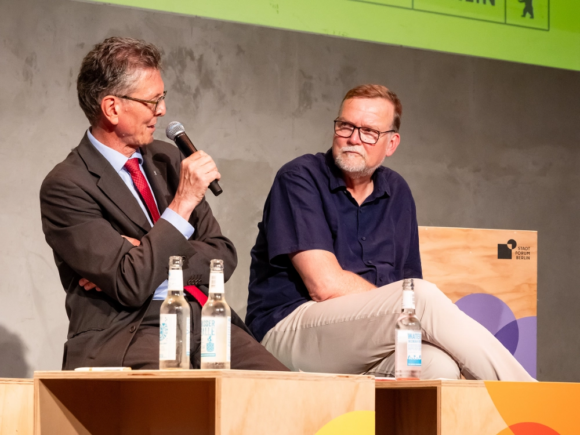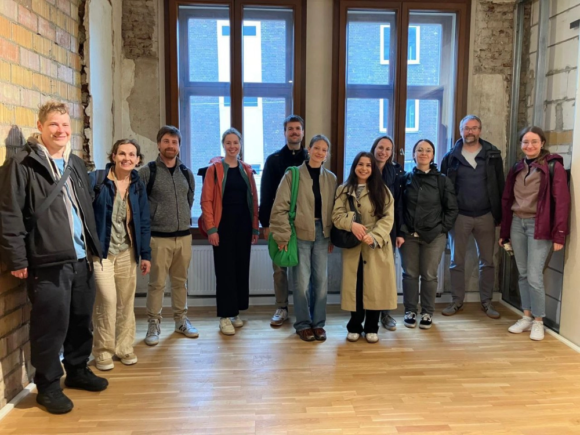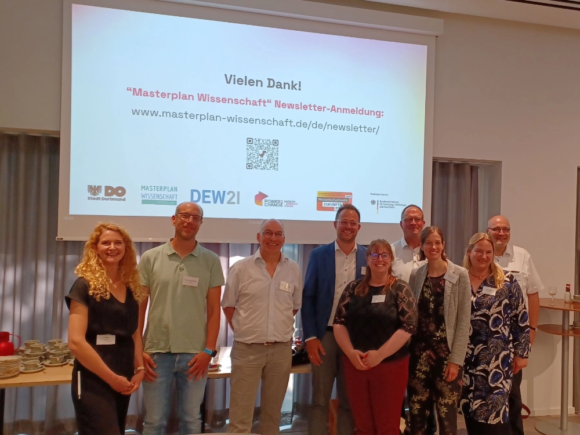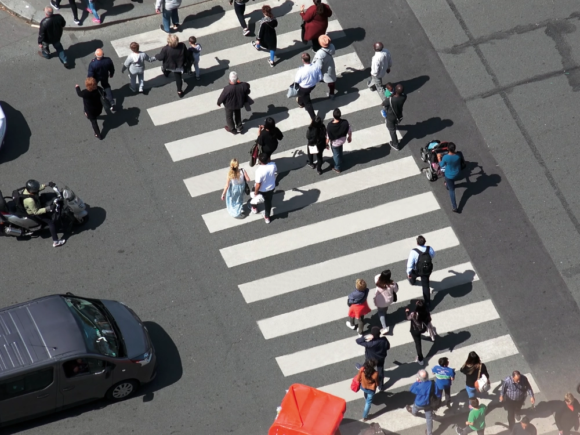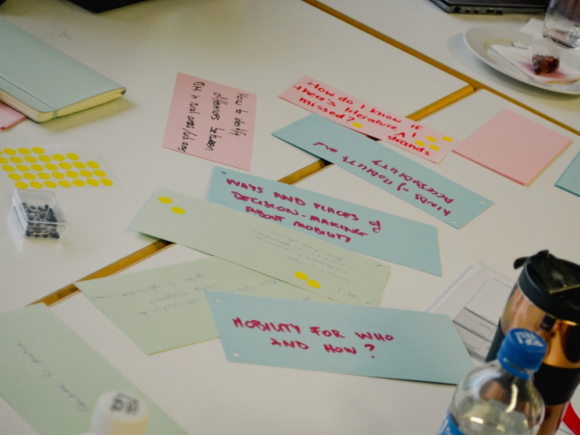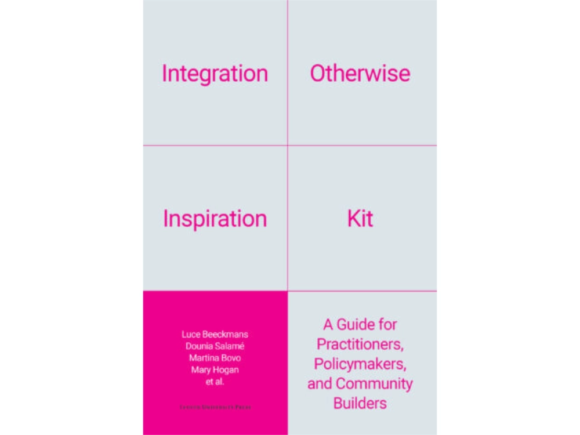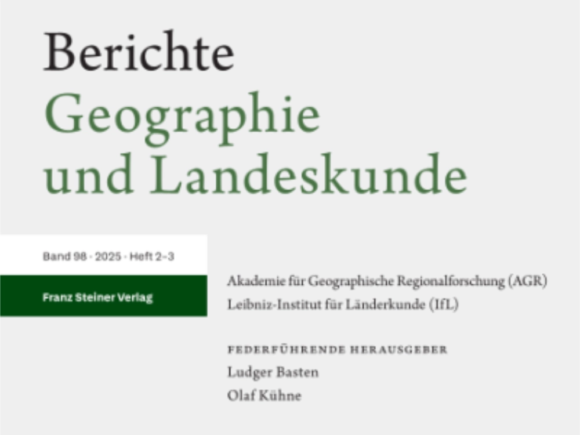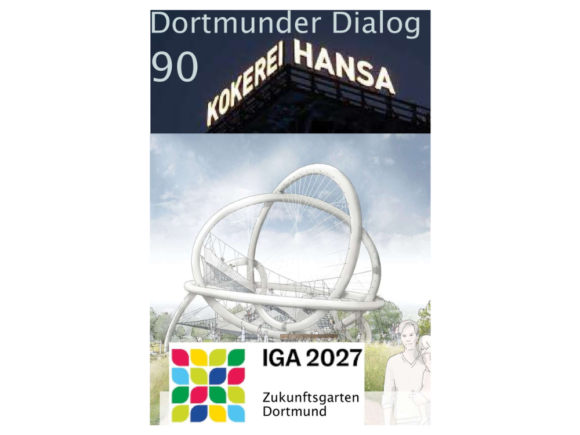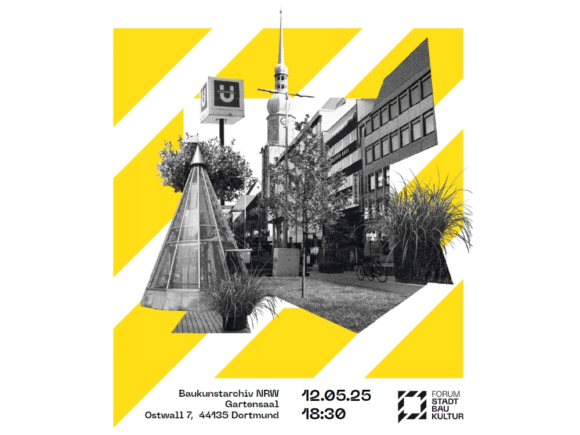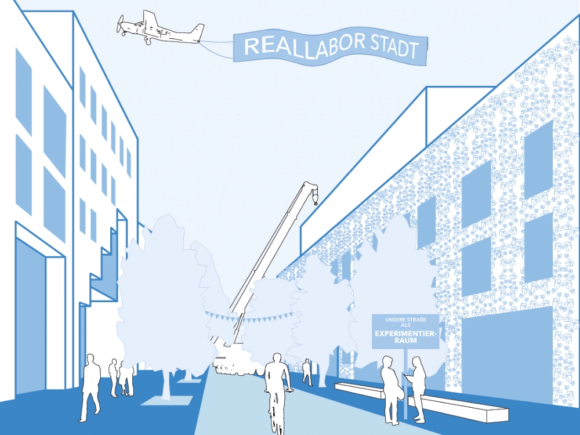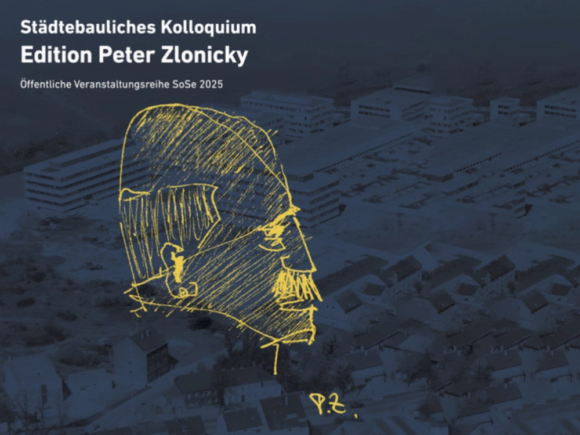Urban research − understanding urban change in its diversity
The process of urbanisation in the early 21st century is enormously dynamic: Urban spaces emerge, grow and change, their transformation takes many forms and is increasingly discontinuous and disparate. A better understanding of these processes is a central concern for the spatial urban researchers at the ILS. We investigate the various dimensions of urban change at different levels of scale and in international comparison. In active dialogue with practitioners, policy-makers and societal stakeholders, we gain important insights from this for the sustainable transformation and design of urban spaces.
We have three main research interests.
The process of urbanisation in the early 21st century is enormously dynamic: Urban spaces emerge, grow and change, their transformation takes many forms and is increasingly discontinuous and disparate. A better understanding of these processes is a central concern for the spatial urban researchers at the ILS. We investigate the various dimensions of urban change at different levels of scale and in international comparison. In active dialogue with practitioners, policy-makers and societal stakeholders, we gain important insights from this for the sustainable transformation and design of urban spaces.
We have three main research interests.
News
Stadtforum Berlin zum Thema „Soziale Infrastruktur“
Soziale Infrastruktur ist das Rückgrat lebendiger Quartiere – sie schafft Räume für Bildung, Kultur, Begegnung und Teilhabe und benötigt dafür Räume und Flächen. Diese Orte müssen zukunftsfähig geplant und entwickelt werden. Über das wie haben sich Fachleute und Interessierte während des Stadtforum am 23. Juni in Berlin ausgetauscht. Mit dabei ILS-Wissenschaftler und Geschäftsführer Ralf Zimmer-Hegmann. Mehr…
Aufbruch in Ückendorf – Exkursion der Forschungsgruppe Sozialraum Stadt
Gelsenkirchen-Ückendorf – ein Quartier im Umbruch, das sowohl als Stadtumbau- als auch als städtebauliches Sanierungsgebiet ausgewiesen ist. Ende Mai hat sich die Forschungsgruppe Sozialraum Stadt des ILS auf einer Exkursion dort einen seltenen, aber wirkungsvollen Ansatz der Stadtentwicklung angeschaut: Die Gelsenkirchener Stadterneuerungsgesellschaft kauft gezielt Immobilien auf, saniert sie umfassend – bis hin zur Auswahl der zukünftigen Mieter. Mehr…
ILS beim Themenabend Zukunftsenergie
„Konflikte in der Energiewende: bessere Lösungen durch Planung, Partizipation und Wege zur Akzeptanz?“ so hieß der Thementisch an dem ILS-Wissenschaftlerin Sarah Friese bei der Veranstaltung „Wissen kompakt: Themenabend Zukunftsenergie“ teilgenommen hat. Die Stadt Dortmund hatte am 16. Juni Dortmunder*innen eingeladen, die sich für das Thema Zukunftsenergie interessieren. Mehr…
ILS-TRENDS 03/25: Wie gut geht es sich in der Stadt? Dortmunder Quartiere im Fokus
Zufußgehen macht vielen Menschen Freude und ist gesund. Trotzdem wird das Zufußgehen als elementarer Bestandteil städtischer Mobilität oft unterschätzt, auch weil im Alltag häufig der Pkw dominiert. Das ILS-TRENDS von Janina Welsch und Anna-Lena van der Vlugt zeigt Ergebnisse aus dem europäischen Forschungsprojekt WalkUrban – Walkable Urban Neighbourhoods, in dem das Zufußgehen in Dortmund, Göteborg (Schweden) und
Genua (Italien) untersucht wurde. Dabei wurden für verschiedene Stadtquartiere deren Fußgängerfreundlichkeit bzw. Walkability untersucht und die Bewohner*innen zu ihren Einschätzungen rund um das Zufußgehen befragt. Im Fokus des Hefts stehen die Ergebnisse zu Dortmunder Stadtquartieren. Zum Heft
Now online: Overview of current and recently completed doctoral projects by ILS researchers
The qualification and promotion of our own young scientists are central concerns of the ILS. Many of our researchers are working towards a doctorate or further competence development as a postdoctoral researcher. A new subpage on our website provides an overview of current and completed doctoral projects. To the page
Publications
Integration Otherwise Inspiration Kit. A Guide for Practioners, Policymakers and Community Builder
Within the Horizon 2020 Project ReRoot, Cornelia Tippel, ILS-Scientist within the research group „Urban Social Space“ has co-authored the „Integration Otherwise Inspiration Kit“. The publication is a practical guidebook that centers bottom-up approaches on integration and moves beyond polarizing debates of newcomers failing to integrate or blames society as insufficiently welcoming. The authors introduce the concept of „arrival infrastructuring“, the interactive process through which newcomers, together with others, actively shape and transform their arrival situations. Through stories from the ground with concise takeaways, alongside tools for reflection and action, this guide equips practitioners, policymakers and community builders with a deeper understanding of the diverse forms of arrival infrastructuring, as well as the successes and challenges of everyday integration processes. https://doi.org/10.11116/9789461666758. Further current selected papers can be found here.
Maintaining mobility of older people in urban areas in the face of climate change. Empirical findings on percieved heat stress and potential adaptive behavior
ILS-Researcher Kerstin Conrad has published a paper in the journal “Zeitschrift für Gerontologie und Geriatrie” in collaboration with Susanne Penger from the University of Siegen. The article covers the perception of extreme heat by elderly people. It covers the results of a survey of 211 persons aged 65 to 92 years in Stuttgart. A cluster of vulnerability factors was discovered, which led to a strong reduction in out-of-home activities during high perceived heat stress. This reinforces the necessity of targeted heat protection and prevention measures in local heat action schemes. https://doi.org/10.1007/s00391-025-02456-y. Further current selected papers can be found here.
Segregation an Grundschulen: Strukturen und Praktiken institutioneller Diskriminierung
ILS researcher Isabel Ramos, in collaboration with Heike Hanhörster from TU Berlin, has observed different forms of institutional discrimination, which deepen school segregation and counteract the function of elementary schools as places of encounter between different population groups. For their recent paper in the journal „Berichte. Geographie und Landeskunde“, they interviewed experts and parents and analyzed the interplay between institutional structures and practices and segregation at school. They identified three dimensions of institutional discrimination in access to elementary school: the strategic goals of a school in handling segregation, the admission process and the profile development and information policy of a school. These factors prove to be subtle, but decisive facets of institutional discrimination, that co-produce and perpetuate spatial and educational inequalities. https://doi.org/10.25162/bgl-2025-0013. Further current selected papers can be found here.
Zwischen Networked Publics und Orten der Begegnung. Ein qualitativ-explorativer Beitrag zur Konzeptualisierung von Online-Nachbarschaftsgruppen
Simon Liebig from the ILS research group “ Urban Social Space” has published an article together with Jan Üblacker from the EBZ Business School in the journal “Berichte. Geography and Regional Geography“. The article examines online neighbourhood groups on various platforms as local communication spaces. Based on 20 interviews, the article analyses the extent to which spatial concepts shape the accessibility of these groups and how interactions are shaped under the conditions of virtual co-presence. The results show that online neighbourhood groups are to be understood as localized networked publics that are characterised by persistent contacts and a geographical location reference. The users’ ideas of space form the content-related communication framework, function as a symbolic connection between the group members and determine accessibility. https://doi.org/10.25162/bgl-2025-0016. Further current specialist publications can be found here.
A decolonial and participatory research approach to envision equitable transformations towards sustainability in the Amazon
Together with colleagues, ILS-Researcher Barbara Schröter has published an article in the journal „Futures“. They present three radical visions of the Amazon they co-created with 20 Black, Indigenous, and other Women of Color (BIWOC) from the Putomayo department in Colombia. Storytelling serves as a tool to capture the BIWOCs differentiated experience of the world and their collective emancipation from different forms of oppression. This way, western dominated imaginaries are challenged and decolonial practices incorporated in to sustainability transformation research. https://doi.org/10.1016/j.futures.2025.103638. Further current selected papers can be found here.
Events
Wissenschaftsjahr 2025: Themenabend Zukunftsenergie in Dortmund
Wie wichtig Energie ist, wurde zuletzt am massiven Stromausfall in Portugal und Spanien deutlich. Doch wie können sich Städte und ihre Bewohner*innen zukunftssicher aufstellen? Wie gelingt die Energiewende? Um diese Fragen geht es beim Themenabend zur Energiezukunft am Montag, 16. Juni, auf der Eventfläche TwentyOne der DEW21 in Dortmund. Die Stadt Dortmund veranstaltet ihn gemeinsam mit dem Projekt „Power2Change: Mission Energiewende“ sowie weiteren Partner*innen aus Wissenschaft und Wirtschaft im „Wissenschaftsjahr 2025 – Zukunftsenergie“. ILS-Wissenschaftlerin Sarah Friese ist als Expertin mit dabei. Infos und Anmeldung
Dortmunder Dialog 90: IGA 2027 – Blumenzauber oder Stadtentwicklung
Die Internationale Gartenausstellung 2027 im Ruhrgebiet steht unter der Leitfrage „Wie wollen wir morgen LEBEN?“. Dortmunds Hauptbeitrag zur IGA 2027 entsteht im Nordwesten des Stadtgebiets rund um das Gelände der ehemaligen Kokerei Hansa und den Deusenberg in Huckarde. Mit dem „Zukunftsgarten“ wird ein großräumiges Stadtentwicklungs- und Infrastrukturprojekt realisiert, das mit hohen Freiraumqualitäten neue Strukturelemente für die ganze Stadt schaffen soll. Wie genau nutzt Dortmund diese Gelegenheit, sich der nationalen und internationalen Öffentlichkeit zu präsentieren? Und was bleibt, wenn die Blumen verblüht sind? Dazu diskutiert der 90. Dortmunder Dialog am 2. Juli im Nahverkehrsmuseum Bahnhof Mooskamp. Zu den Mitwirkenden zählt auch ILS-Wissenschaftler Prof. Dr. Thomas Weith. Mehr…
Forum Stadtbaukultur Dortmund
“RE:START Kampstraße” lautet das Thema des nächsten Forums Stadtbaukultur. Am Montag, 12. Mai 2025 um 18.30 Uhr wird im Gartensaal des Baukunstarchiv NRW um die zukünftige Gestaltung der Kampstraße in der Dortmunder Innenstadt diskutiert. Durch ihre funktionale und räumliche Bedeutung als markante Ost-West-Achse durch die Dortmunder City, nimmt die Straße eine zentrale Position mit hohen Erwartungshaltungen aus der Stadtgesellschaft ein. Ein umfangreicher Beteiligungsprozess soll die interessierte Öffentlichkeit dazu anregen, Zielvorstellungen für die Maßnahme zu formulieren. Um Anmeldung wird gebeten. Mehr…
(Innen)Stadt im Wandel
Das Städtebauliche Kolloquium an der Fakultät für Architektur der RWTH Aachen befasst sich in diesem Sommer mit dem Wandel der Innenstadt. An drei Terminen werden im Foyer des Reiff Museum– von der Nutzungsmischung über Anforderungen an Flexibilität bis zur Klimaresillienz – komplexe Herausforderungen der Stadt der Zukunft diskutiert. Mehr…
Edition Peter Zlonicky
Das Städtebauliche Kolloquium »Edition Peter Zlonicky« an der TU Dortmund eröffnet anlässlich seines 90. Geburtstags an drei Terminen im Sommersemester 2025 multiple Perspektiven auf das Lebenswerk Peter Zlonickys. Mehr…

